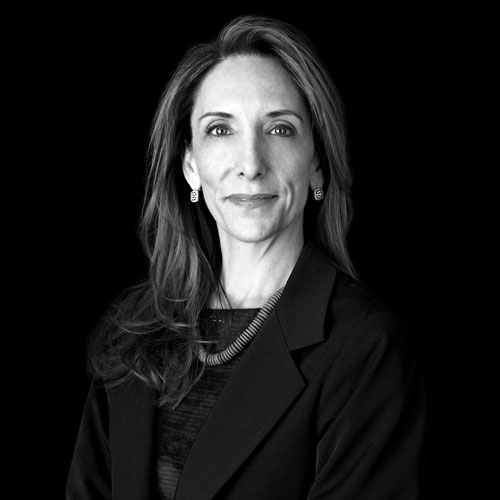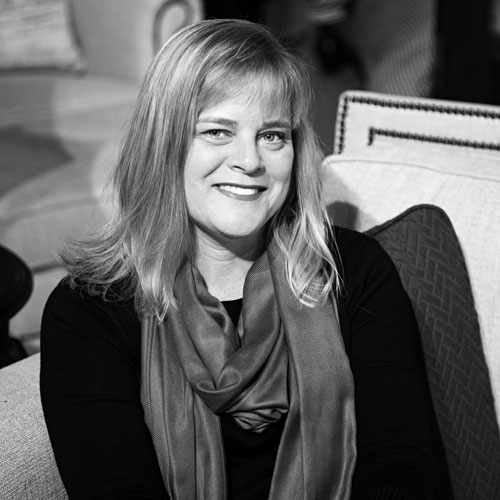When asked how she would describe her work at a party, Michelle Lewis laughs and says, “Basically I’m in sales. I used to think of M&A as forcing your way through—‘We’re going to buy your company or crush it’—and I’ve come to understand that is both naive and ineffective.”

Lewis is the chief strategy officer of multibillion-dollar public company DistributionNOW, a leading provider of supplies, equipment, and solutions across all sectors of the oil and gas industry. Based in Houston, Texas, the company, which was originally the distribution arm of National Oilwell Varco, serves a global market with more than 300 locations in more than twenty countries.
Lewis, who joined the company in 2009 after many years in consulting and restructuring, transitioned from a position as the distribution arm’s senior vice president of strategy and shared services to her current role when the company spun off in 2014. In the year after the spinoff, DistributionNOW acquired nine companies.
When pursuing strategic merger and acquisition (M&A) deals to help DistributionNOW build out its portfolio of value-added products and solutions across the globe, Lewis has learned just how much relationships matter. “A lot of companies we talk to are family-owned and operated,” she says. “What’s the advantage of selling a third-generation family business? Their grandfather started the business, their father ran it. Why on Earth would they want to sell? At a base level, I’m selling them on the benefits—tangible or intangible—of being part of a larger organization.”
This isn’t cynicism or calculation. Relationships matter to Lewis. Most companies have what Lewis calls “a number,” a valuation at which they would consider selling. “But what’s more important is the stuff that comes after that,” she says. “It’s the soft stuff that matters. They won’t sell to someone who won’t take care of their family.”
In evaluating potential acquisitions, finding a strong cultural match is, for Lewis, the most important part of the three-part process. Assessing whether a company is a strategic fit—whether they have a value-added product line in the right geographic area—is the easiest step, she says. Analyzing a prospect’s financial health is more involved, but ultimately comes down to math. “We won’t do deals that aren’t accretive,” she says. “That’s not good for our shareholders.”
“I used to think of M&A as forcing your way through—‘We’re going to buy your company or crush it’—and I’ve come to understand that is both naive and ineffective.”
Then the team sets out to appraise cultural fit. It’s there that the most crucial work is done, and it’s more art than science. “It’s kind of like dating,” Lewis says. “While there is something of a science to M&A from the perspective of strategic fit and financial health, the cultural piece is equally important.” Lewis and her team ask questions like, “Is there a cultural similarity? Do we have the same values? Do they care about their people? Do they care about their customers and suppliers?”
One of Lewis’s early goals was to upgrade the technology the company uses to foster better relationships and improve institutional memory. At a prior company, she says, “We had been using spreadsheets to track hundreds of companies. We were tracking all our targets in a homegrown Excel workbook.” It was extremely cumbersome. So when she built the DistributionNOW team, one of her first tasks was to figure out how to improve the process.
Automation was the answer. The corporate development team began using a cloud-based, specific software to track every stage of the M&A process, from targeting through integration. Its effect has been tremendous. “Being able to quickly see where things are has given us better visibility and a better ability to manage the relationships and the process, which gets us better results,” she says. “We’ve expedited our ability to report to the CEO, the board, or a business segment on the deal pipeline and any phase in it within a moment’s notice.”
In terms of customer relationships, she says, “It’s like my little black book”—with one big difference. “If I get hit by a bus tomorrow, the information I have accumulated doesn’t go away,” she adds. “Anyone who works for me has the ability to see where we are in the process with any deal: what our last conversation was, what the seller’s favorite wine is, whether his son got married and decided to move to Costa Rica and become a surfing instructor.”
Negotiating successful deals relies on building trust. “We enter this from the perspective of future partners who are literally going to be working side by side on the other end of this. There has to be a trusting relationship,” Lewis explains.
At the end of the day, everything comes back to family—not just the seller’s. “DistributionNOW is building a business, but also a family,” she says. “Not that our families don’t have challenging conversations, but at the end of the day, if something happens, you’re going to be there for each other to figure it out.”

